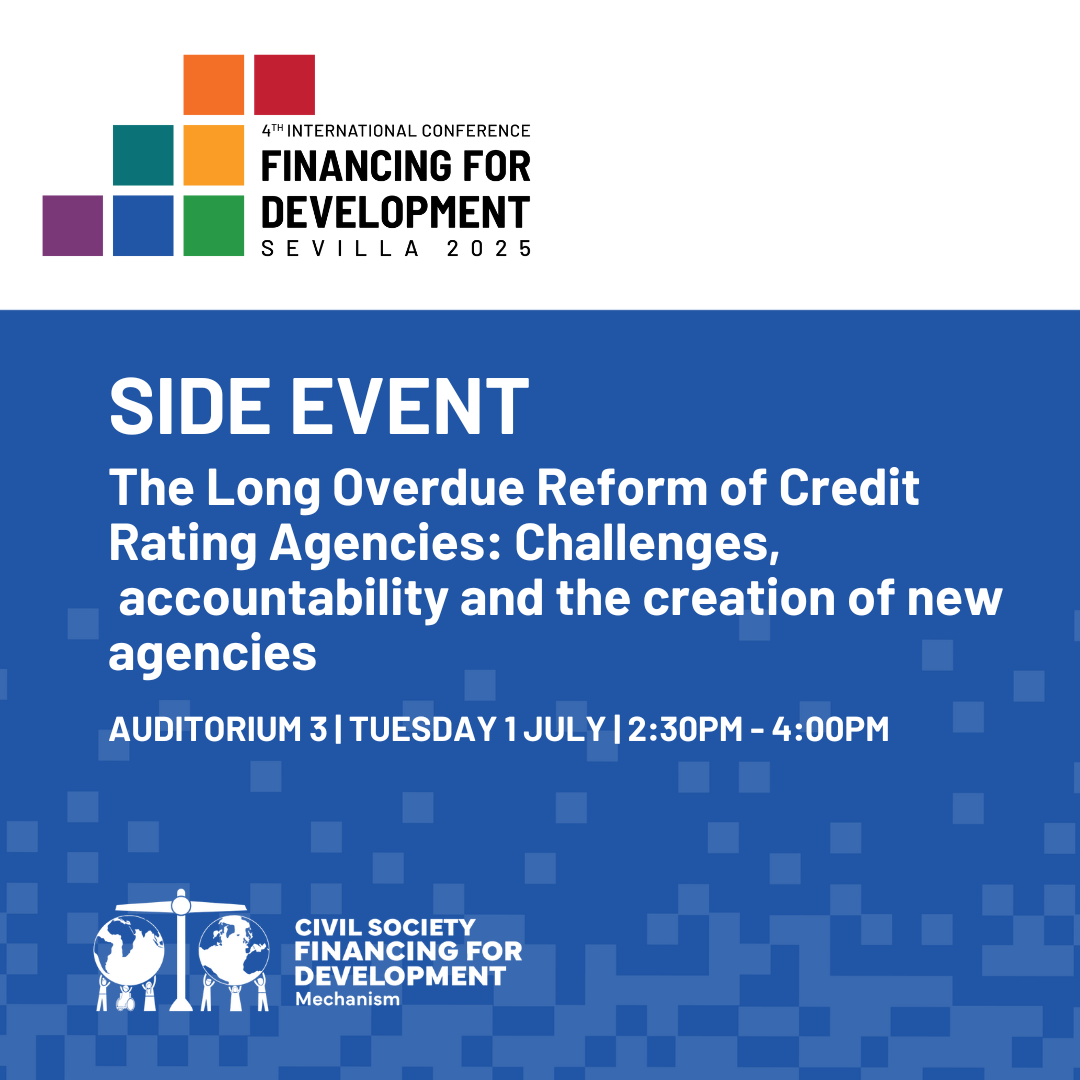The Long Overdue Reform of Credit Rating Agencies: Challenges, accountability and the creation of new agencies
AUDITORIUM 3 | TUESDAY 1 JULY | 2:30PM - 4:00PM

Abstract
Credit rating agencies (CRA) are characterized by multiple problems and failures, including biased and inaccurate ratings, conflicts of interest, penalizing debt and climate vulnerability, monopoly power, procyclicality, a bias against public regulations, and lack of accountability, among others. In aggregate, these challenges have significantly generated systemic risks in debt sustainability and fiscal space, while exacerbating financial crises. This event will seek to substantively address the scope for the role of the UN in advancing the meaningful reform of CRAs through an intergovernmental process, while also discussing future forward possibilities for the creation of new rating agencies that deliver more equitable ratings that facilitate, rather than hinder, the right to development.
Description
Credit rating agencies (CRA) are characterized by multiple problems and failures, including biased and inaccurate ratings, conflicts of interest, penalizing debt and climate vulnerability, monopoly power, procyclicality, a bias against public regulations, and lack of accountability, among others. In aggregate, these challenges have significantly generated systemic risks in debt sustainability and fiscal space, while exacerbating financial crises. The threat of downgrades and subsequent reputational damage, loss of market access, increased borrowing costs, and capital outflows create a chilling cocktail of fiscal and financial repercussions for developing countries.
A plethora of examples illustrate the adverse implications of CRA dysfunctions. During the COVID pandemic, 11 developing countries saw their sovereign credit rating downgraded during the first half of 2020, and 12 countries had their outlooks changed to negative, dissuading governments from seeking debt restructuring and relief. In the aftermath of ecological disasters such as floods, hurricanes, and droughts, in great measure triggered by climate change effects driven by high-emission nations, rating downgrades are issued which increases the cost of urgently needed financing for urgent loss and damage needs. Actions must be taken to eliminate CRAs role in the ‘Africa debt premium,’ which results in African nations paying significant higher interest rates on bonds compared to their peers from other regions, despite similar risk ratings.
The draft FfD4 outcome document calls for the reform of CRAs methodologies, considerations, assessments, including transparency and accountability improvements. An intergovernmental process open to all Member States under the auspices of ECOSOC is required in order to convene Member States, CRAs, regulators, standard setters, and long-term investors, along with public institutions to address and promote meaningful and accountable reform. The establishment of new rating agencies, such as a public and independent rating agency as well as the Africa Credit Rating Agency, has been proposed by multiple actors and agencies.
This event will seek to substantively address the scope for the role of the UN in advancing the meaningful reform of CRAs through an intergovernmental process, while also discussing future forward possibilities for the creation of new rating agencies that deliver more equitable ratings that facilitate, rather than hinder, the right to development.